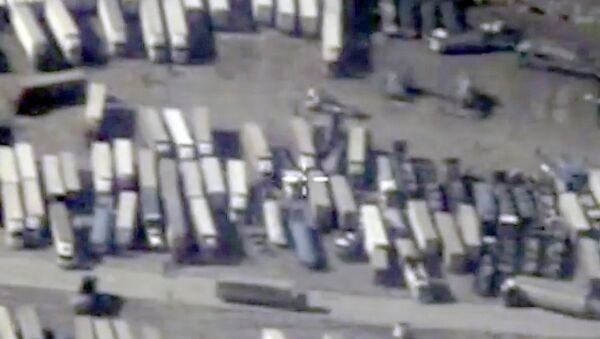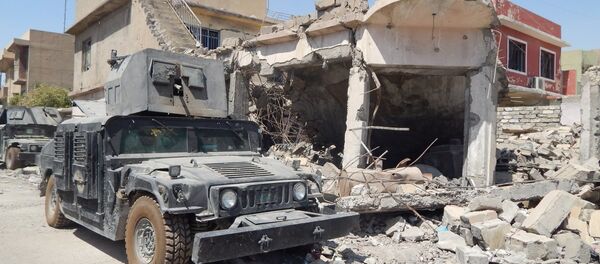"Now that [Daesh] is in some disarray… it will look to its core business model, which is to deal in stolen oil, opium, and human trafficking," Kwiatkowski said.
Kwiatkowski noted that the terrorist group makes some $500 million annually off the oil trade and another $1 billion per year on opium sales.
The formal military officer doubted that the loss of "the dysfunctional and hard to manage capital of Mosul will greatly impact the fundamental function and purpose of [Daesh]."
Instead, Daesh could even become more formidable as it focuses on its criminal enterprises, Kwiatkowski assessed.
"That purpose — particularly the criminal elements of smuggling and terror attacks — may actually be enhanced by losing the real estate that was Mosul," she said. "As participants in the official and unofficial arms sales and distribution in the region, this expertise may also prove profitable in places where the fight continues, possibly Yemen and Syria, and beyond."
Daesh needed to be cut off from its main sources of revenues, as loss of economic power would "emasculate" it, Kwiatkowski advised.
Daesh needed to suffer "a loss of the annual poppy crop out of Afghanistan, improved security and transit of legitimate oil sales, political reform in the region to reduce crime and fraud in government in order to enhance the lives and economic prospects of the people living there," she noted.
"These are the things needed to emasculate [Daesh]… without a capital, it will likely become smaller in numbers, and revert to a more straightforward terroristic organization," she said.
However, the US-led international coalition against Daesh showed no sign of being able crack down on the drug, illegal oil and human trafficking trades from which Daesh profited, Kwiatkowski continued.
Daesh had flourished because it had been able to take advantage of US policies to weaken and then topple one stable government after another across the Middle East, leaving chaos, fear, anarchy and corruption in its wake, Kwiatkowski explained.
Daesh "like al-Qaeda before it, has been extremely useful to the US and Israel in pursuing and justifying their objectives, and it serves interests of the House of Saud and other US satraps, in part by creating anxiety and displacement for many minority Shia and moderate Sunni," she said.
"Daesh was never designed to govern, and it did not ‘govern’ Mosul. The Islamist threat must be understood in the context of the larger powers and their interests. Daesh as an offshoot of al Qaeda, informed by Saudi-funded Wahhabism," she said.
On Tuesday, US-led coalition commander Lieutenant-General Steven Townsend said Daesh would likely turn to insurgency after it loses its territory and added the US military had already started training the Iraqi military to address that threat.



